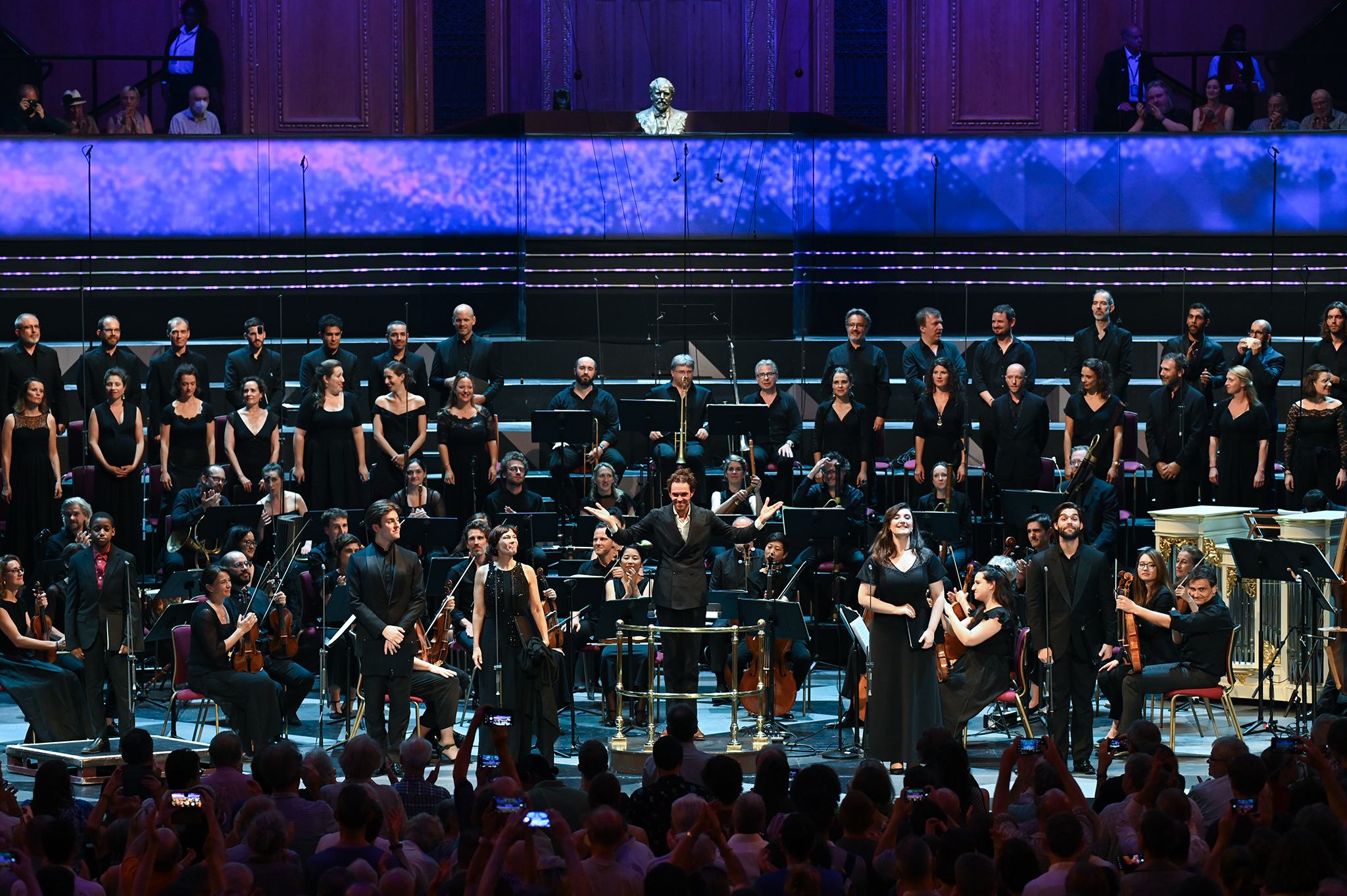 Since quite a lot of Mozart’s Requiem was written by someone else, it has attracted a long series of musicologists and conductors convinced that they could do a better job of completing it than Franz Xaver Süssmayr. I rather feared when Raphaël Pichon and his ensemble Pygmalion promised “an alternative vision of Mozart’s Requiem” that we were in for yet another alternative completion. In fact this was altogether more interesting, interspersing the movements of the Requiem with much lesser-known pieces from earlier in Mozart’s career, often lovely and striking in their own right, and foreshadowing ideas from his great final work.
Since quite a lot of Mozart’s Requiem was written by someone else, it has attracted a long series of musicologists and conductors convinced that they could do a better job of completing it than Franz Xaver Süssmayr. I rather feared when Raphaël Pichon and his ensemble Pygmalion promised “an alternative vision of Mozart’s Requiem” that we were in for yet another alternative completion. In fact this was altogether more interesting, interspersing the movements of the Requiem with much lesser-known pieces from earlier in Mozart’s career, often lovely and striking in their own right, and foreshadowing ideas from his great final work.
Thus before the first movement we had a sequence of minor pieces: a choral canon, an early version of the Masonic Funeral Music and a re-texted Kyrie in D minor, throughout which it seemed as though the Introit and Kyrie of the Requiem was gradually taking shape in our mind’s ear. The Dies Irae was preceded by a movement from the incidental music to Thanos, King of Egypt, fitted with religious words, occupying a middle ground between the Last Day and the arrival of the Commendatore in Don Giovanni. Before the Hostias we had a contrafactum of the Adagio from the Gran Partita with an added choral part, its “rusty squeezebox” accompaniment leading smoothly into that of the ensuing Requiem movement. Most evocative of all was what followed the Lacrimosa: the fragmentary fugal Amen which Mozart probably intended for this position but of which he only wrote a few bars. The silence which followed its abrupt fade-out was infinitely more powerful than the laboured completions which feature in some alternative realizations.
With the exception of the Lacrimosa itself, of which the opening eight bars were given in the form in which Mozart left them without Süssmayr’s accompaniment, this was otherwise the familiar version of the Requiem. The performance style was anything but familiar though, emphasizing Mozart the operatic composer, with extreme tempi and dynamics bringing the drama vividly to life. I have always thought that it was Verdi who came closest to evoking the idea of the Last Judgement; after this performance I may have to revise my opinion. In other hands the crescendi and ritardandi might have seemed overdone and mannered, here they seemed all of a piece with the concept as a whole, Pichon making a virtue of the brevity of Süssmayr’s Hosanna with a swift and agile reading. The period instruments of the Pygmalion ensemble brought an added immediacy to the sound with raw and muscular tones, matched throughout by incisive and committed singing from a superb chorus of around 35 voices.
Of the soloists, Alex Rosen brought clarity and sonority to his Requiem numbers and drama to the motet Ne pulvis and cinis which preceded the Dies Irae. Beth Taylor channelled her inner Kathleen Ferrier for the beautiful Kirchenlied “O Gottes Lamm”, which really should be in every hymnbook. Sandrine Piau (standing in at short notice) and Laurence Kilsby completed a well-balanced vocal quartet. And boy-treble-of-the-moment Malakai Bayoh sang the second of the Five Solfeggios (in fact the Christe Eleison of the C Minor Mass up a tone and minus the words) with admirable assurance and smoothness of line. It fell to him to open and close the concert with In Paradisum, sung unaccompanied to the traditional plainsong, and at its second appearance echoed in Tavener-like canon by the sopranos of the chorus, making the whole evening seem like a requiem for Mozart himself.
William Hale.
